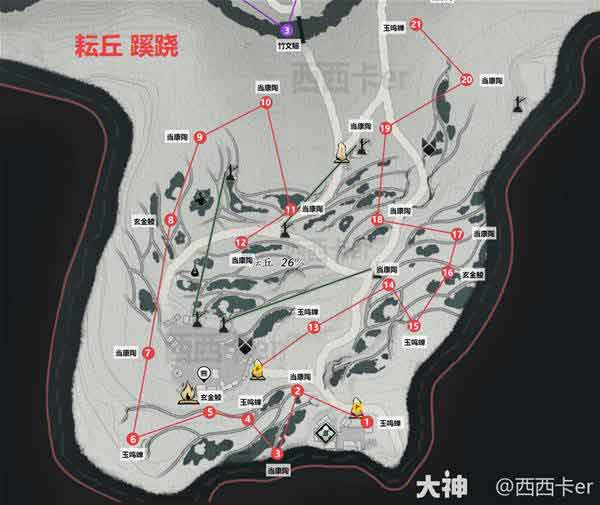一个ipq的例子——libipq使用简介
时间:2006-08-11 来源:迷信的兔子
Thursday, May 12, 2005
Compiling LIBIPQ Examples
You need the following library headers to compile the LIPIPQ examples on this page:
#include <linux/netfilter.h>
#include <libipq.h>
#include <netinet/tcp.h>
#include <netinet/ip.h>
Posted by Steven Scott at 2:17 PM
Categories: LIBIPQ
Thursday, February 03, 2005
Determining the IP protocol of a packet from LIBIPQ
When you recieved the ipq_packet_msg structure from LIBIPQ you need to determine what IP protocol (TCP, UDP, etc) is contained after the IP header. Below is a simple fuction to determine what IP protocol is contained within the packet.int identify_ip_protocol (ipq_packet_msg_t *msg)
{
int protocol=0; /* 6 = TCP, 16 = UDP */
/* Cast the IP Header from the raw packet */
struct iphdr *iph = ((struct iphdr *) msg->payload);
/* get the protocol identifier from the ip header */
protocol = iph->protocol;
return(protocol);
}
Once you determine the protocol you can then cast out the next header. Like this for TCP:
/* Cast the TCP Header from the raw packet */
struct tcphdr *tcp = (struct tcphdr *)(m->payload + (iph->ihl << 2));
or like this for UDP:
/* Cast the UDP Header from the raw packet */
struct udphdr *udp = (struct udphdr *) (msg->payload + (iph->ihl << 2));
Posted by Steven Scott at 10:31 AM
Categories: LIBIPQ
Monday, January 31, 2005
LIBIPQ udp packet parsing
Here's another snippet of code for calculating and parsing a UDP packet with LIBIPQ. This function gets the first two bytes of the UDP packet payload(data).__u16 get_udp_two_payload_bytes(ipq_packet_msg_t *msg)
{
unsigned int udp_header_size = 8; /* UDP always has an 8 byte header! */
__u16 fist_two_bytes;
/* Cast the IP Header from the raw packet */
struct iphdr *iph = ((struct iphdr *) msg->payload);
/* Cast the UDP Header from the raw packet */
struct udphdr *udp = (struct udphdr *) (msg->payload + (iph->ihl << 2));
/* get the payload offset from within the raw packet */
int unsigned payload_offset = ( udp_header_size + (iph->ihl << 2) );
/* calculate the length of the UDP payload */
int unsigned payload_length = htons(udp->len) - udp_header_size;
/* get the first two bytes of the payload */
if(payload_length)
first_two_bytes = *(__u16 *) (msg->payload + payload_offset);
else /* There was no payload... */
printf("ERROR: Payload is zero....\n");
return(first_two_bytes);
}
Posted by Steven Scott at 1:39 PM
Categories: LIBIPQ
Wednesday, January 05, 2005
ipq_packet_msg structure
Just a dump of the ipq_packet_msg structure.ipq_packet_msg structure defined in /usr/include/linux/netfilter_ipv4/ip_queue.h:
typedef struct ipq_packet_msg {
unsigned long packet_id; /* ID of queued packet */
unsigned long mark; /* Netfilter mark value */
long timestamp_sec; /* Packet arrival time (seconds) */
long timestamp_usec; /* Packet arrvial time (+useconds) */
unsigned int hook; /* Netfilter hook we rode in on */
char indev_name[IFNAMSIZ]; /* Name of incoming interface */
char outdev_name[IFNAMSIZ]; /* Name of outgoing interface */
unsigned short hw_protocol; /* Hardware protocol (network order) */
unsigned short hw_type; /* Hardware type */
unsigned char hw_addrlen; /* Hardware address length */
unsigned char hw_addr[8]; /* Hardware address */
size_t data_len; /* Length of packet data */
unsigned char payload[0]; /* Optional packet data */
} ipq_packet_msg_t;
Posted by Steven Scott at 12:01 PM
Categories: LIBIPQ
Thursday, December 16, 2004
LIBIPQ Packet Processing
For those that are not familiar with LIBIPQ, it's a library for receving packets from the Netfilter framework in user space applications. You can use this library to grab packets before they leave the stack, and make decisions on what to do with them. For instance you can Accept, Reject, or even mangle packets. It uses the IP_QUEUE module which you may have seen used with IPTABLES.For example: # iptables -A OUTPUT -j QUEUE
This tells netfilter to route all out going packets orginating from your machine to the QUEUE.
Developing with LIBIPQ requires the iptables-devel package to be installed. You can then compile your programs by linking them to the LIBIPQ library as shown below:
# gcc yourapp.c -lipq
You need to be root to run any program that uses LIBIPQ. Also if you recieve an error like, "passer: Failed to send netlink message: Connection refused" you need to load the ip_queue module. Just issue: # modprobe ip_queue.
I would like to thank Ulysses, Srinivas, Henrik, Maarteen for all their help. If I forgot anyone else thank you too!
Below is a code snippet for parsing out the raw packet found in the structure ipq_packet_msg_t(ipq_packet_msg_t->payload). This snippet fits into the example from Quick Intro to libipq. This is very useful for people just getting started with LIBIPQ since documentation on this is scarce.
case IPQM_PACKET:
{
ipq_packet_msg_t *m = ipq_get_packet(buf);
__u16 first_two_bytes = 0; /* hold the first two bytes from payload */
/* Cast the IP Header from the raw packet */
struct iphdr *iph = ((struct iphdr *)m->payload);
/* Cast the TCP Header from the raw packet */
struct tcphdr *tcp = (struct tcphdr *)(m->payload + (iph->ihl << 2));
/* get the payload offset from with the raw packet */
int unsigned payload_offset = ((iph->ihl << 2) + (tcp->doff << 2));
/* calculate the length of the payload */
int unsigned payload_length = (unsigned int) ntohs(iph->tot_len) - ((iph->ihl << 2) + (tcp->doff << 2));
/* Calculate the size of the IP Header. iph->ihl contains the number of 32 bit
words that represent the header size. Therfore to get the number of bytes
multiple this number by 4 */
int iphdr_size = (iph->ihl << 2);
/* Calculate the size of the TCP Header. tcp->doff contains the number of 32 bit
words that represent the header size. Therfore to get the number of bytes
multiple this number by 4 */
int tcphdr_size = (tcp->doff << 2);
/* get the destination port of the packet */
int port = ntohs(tcp->dest);
/* Get the first two bytes of the payload if a payload is present*/
if(payload_length)
first_two_bytes = *(__u16 *) (m->payload + payload_offset);
/* example code */
if (port == 9555) /* Check for a port match */
{
printf("Matched a packet\n");
if(payload_length)
printf("First two bytes: 0x%x\n", first_two_bytes); /* prints in HEX */
printf("IP Header size: %d\n", iphdr_size);
printf("TCP Header size: %d\n", tcphdr_size);
printf("Payload Size : %d\n", payload_length);
printf("TOTAL IP Packet size: %d\n", ntohs(iph->tot_len));
printf("\n");
status = ipq_set_verdict(h, m->packet_id, NF_ACCEPT, 0, NULL);
}
else
{
status = ipq_set_verdict(h, m->packet_id, NF_ACCEPT, 0, NULL);
if (status < 0)
die(h);
}
break;
}
}
相关阅读 更多 +










